HA3021 Corporations Law: R v Firns Case Analysis - Insider Trading
VerifiedAdded on 2022/11/26
|14
|1123
|498
Case Study
AI Summary
This assignment analyzes the case of R v Firns [2001] NSWCCA 191, focusing on director duties and insider trading under the Corporations Act 2001 (Cth). The case involves Ron Firns, a director of Carpenter Pacific Resources NL, who was accused of insider trading after using information about a favorable court decision to purchase shares. The analysis examines the legal arguments, including whether the information was "generally available" as defined by the Act. It also explores Firns' alleged breaches of director duties, specifically those related to care, diligence, and good faith. The judgment, which initially found Firns guilty but was later overturned on appeal, is critically assessed, considering its implications for establishing insider trading claims in Australia and the evolving standards of director responsibilities. The document concludes by emphasizing the importance of directors avoiding the use of confidential information for personal gain while adhering to their duties to protect the company's interests.
1 out of 14
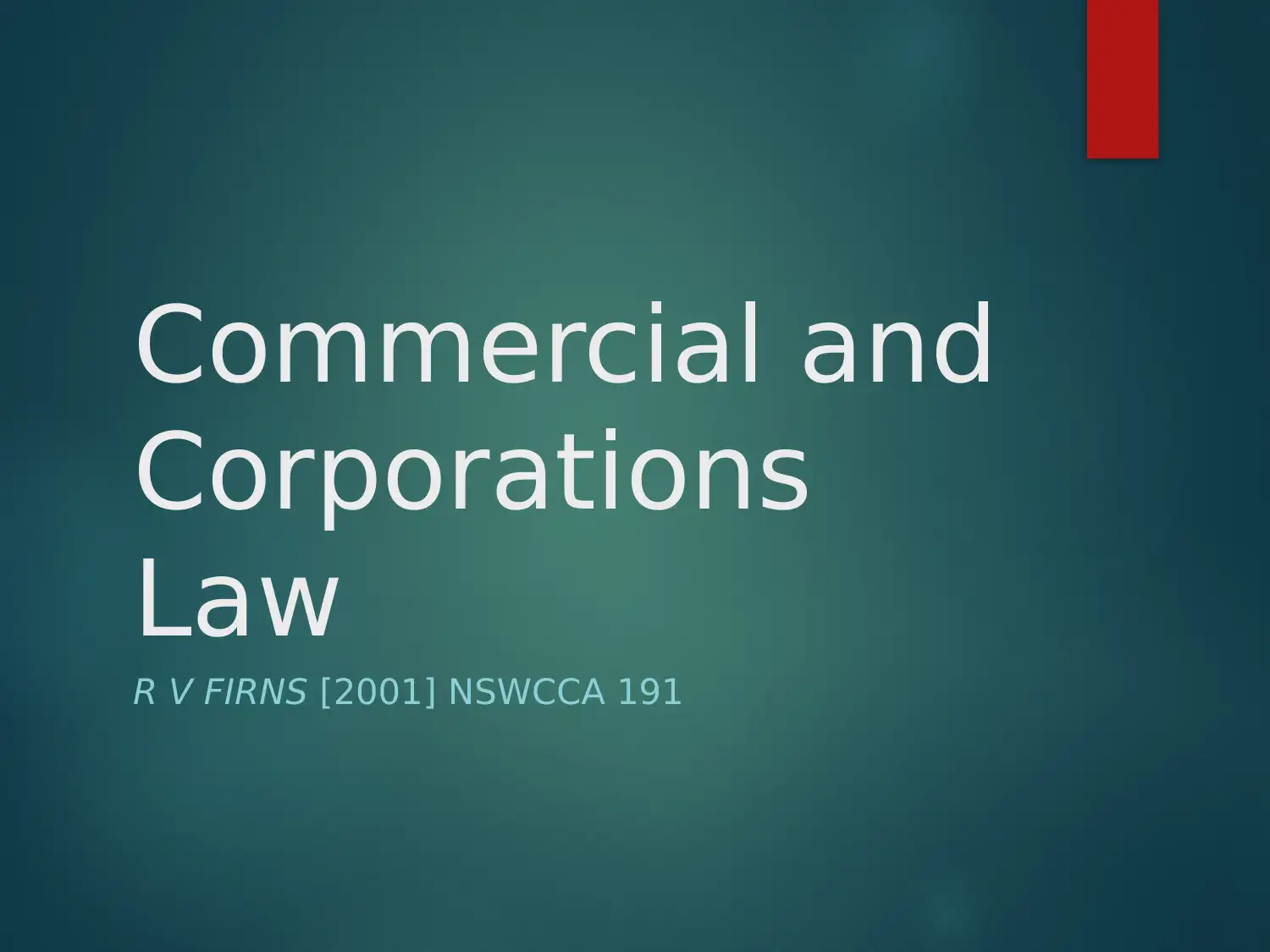
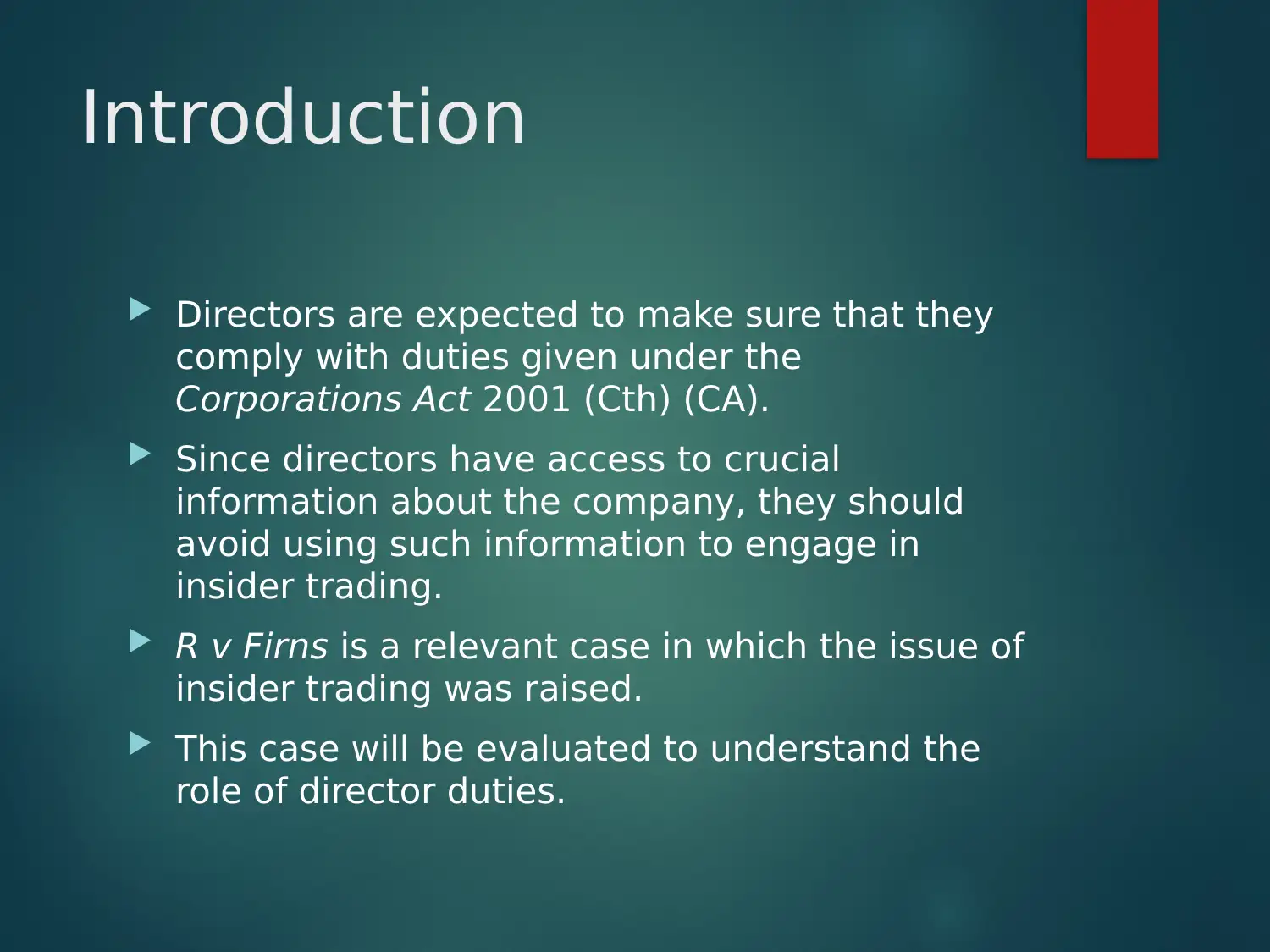
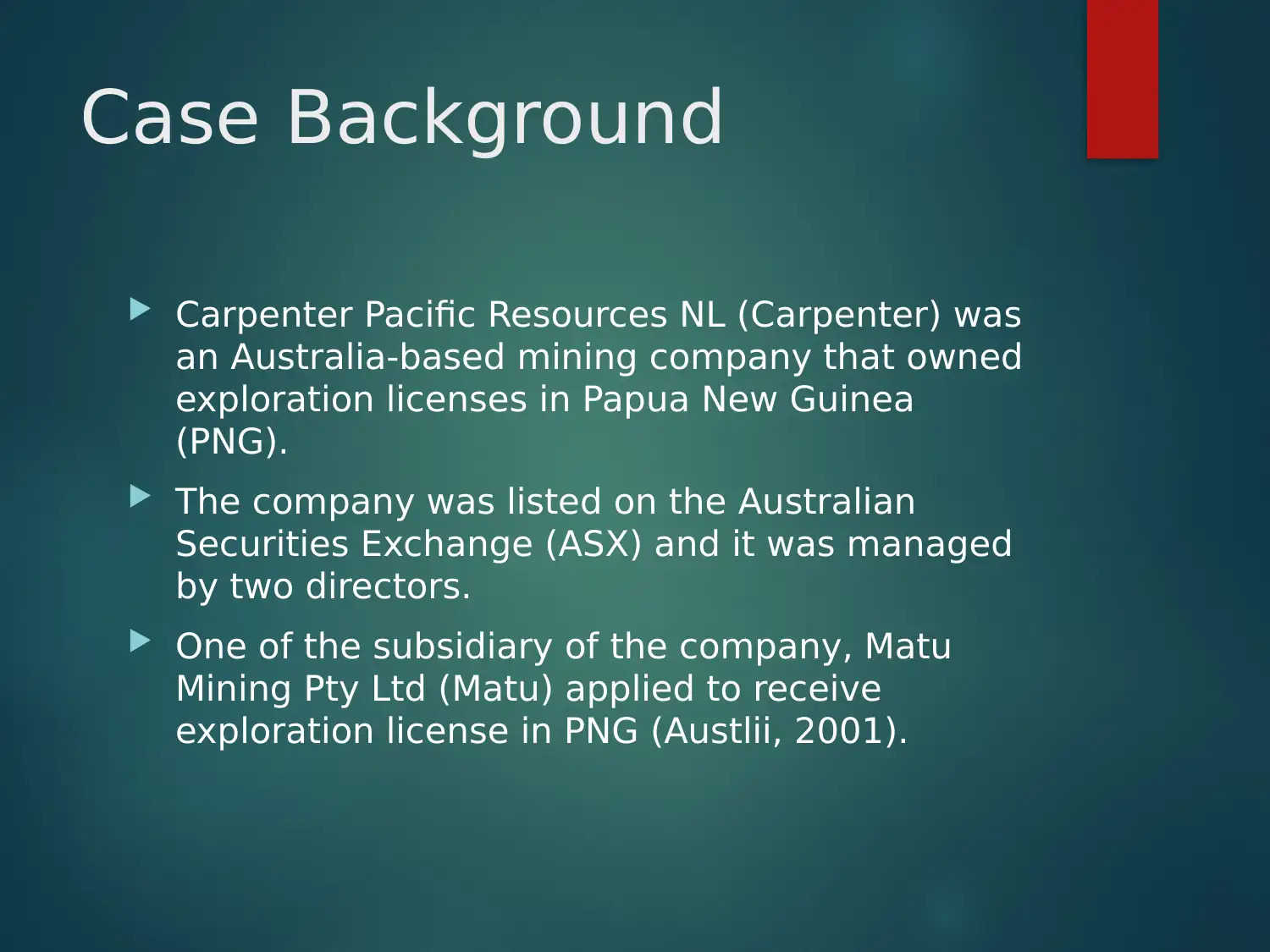

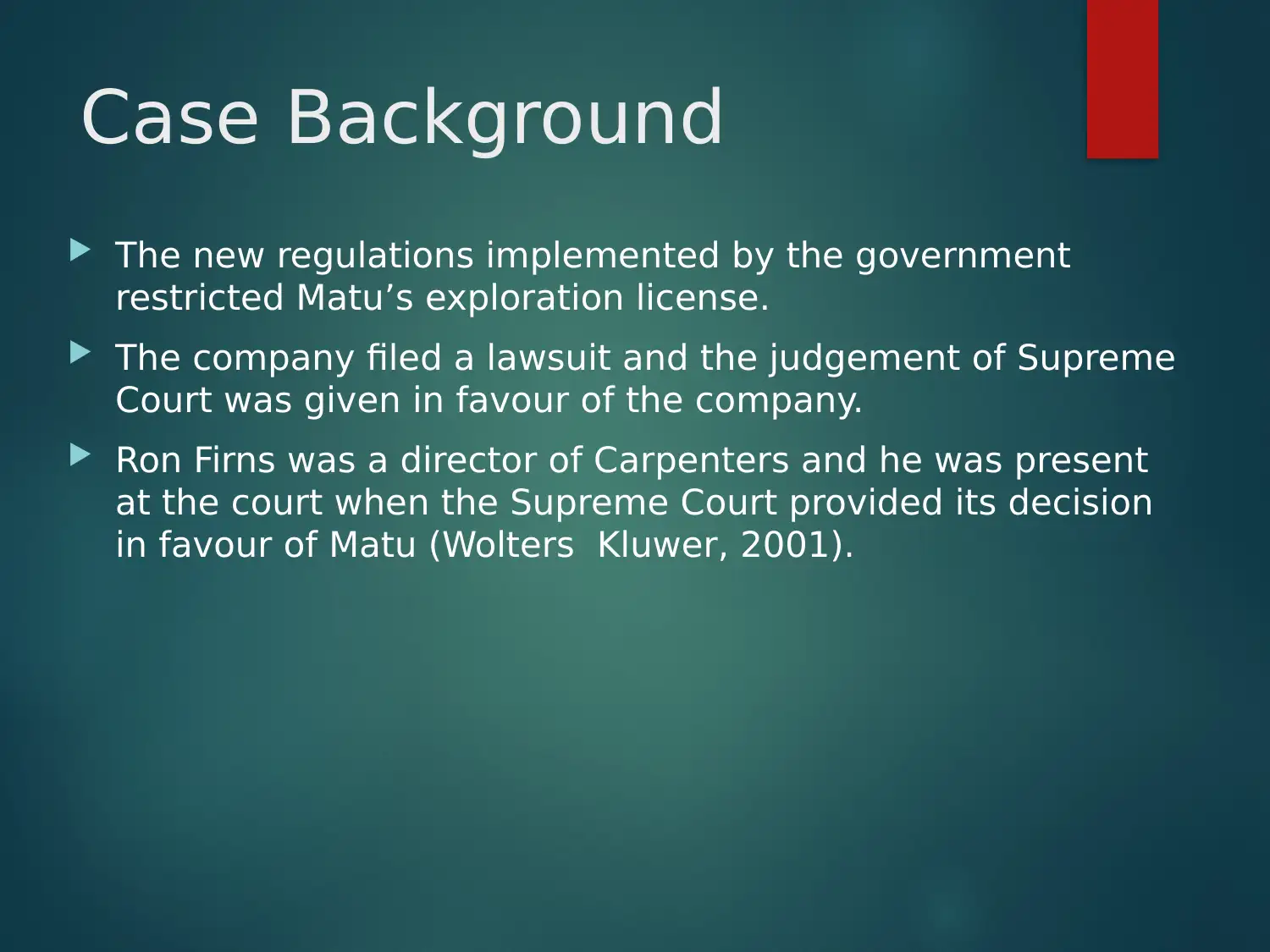
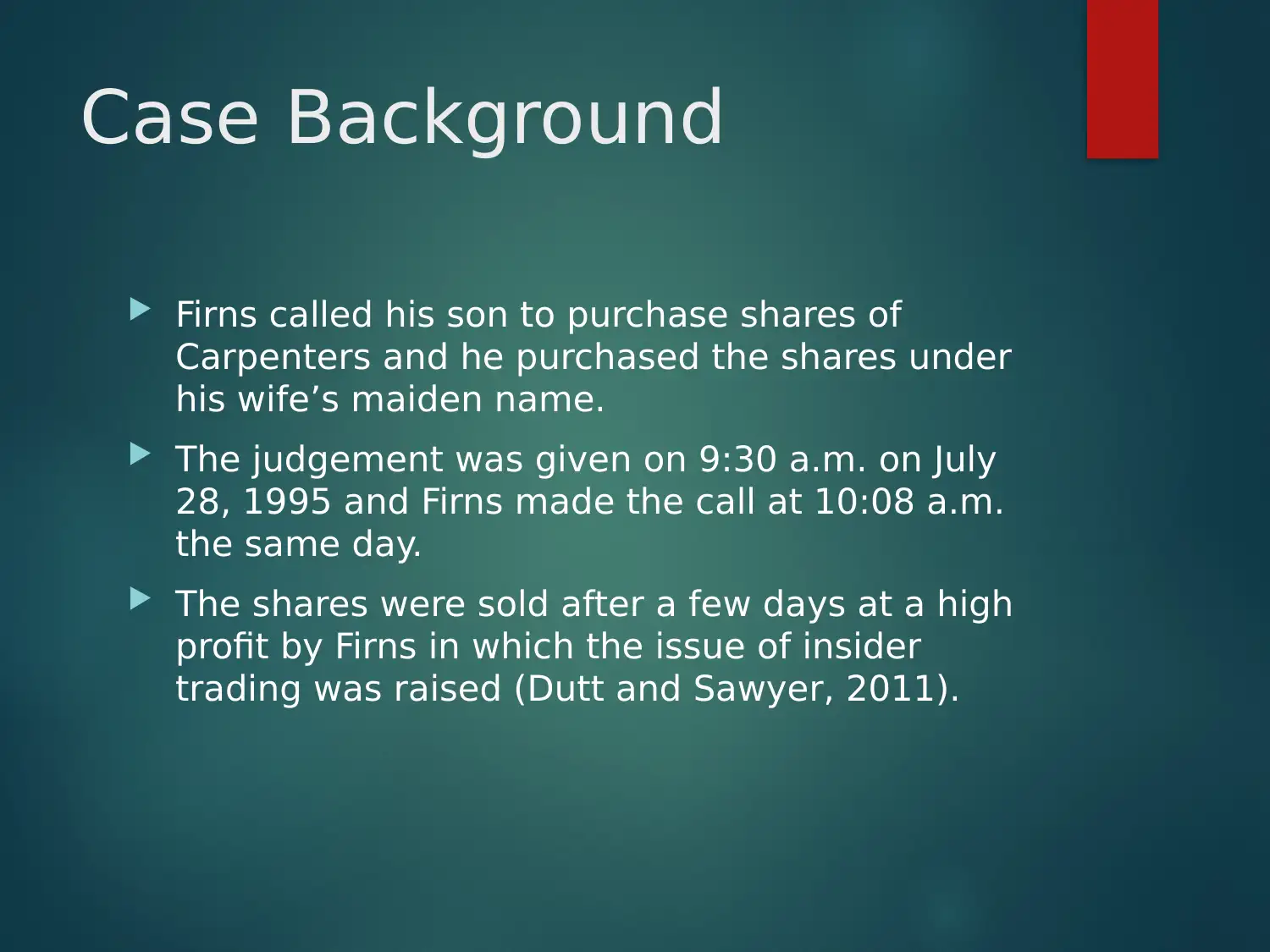
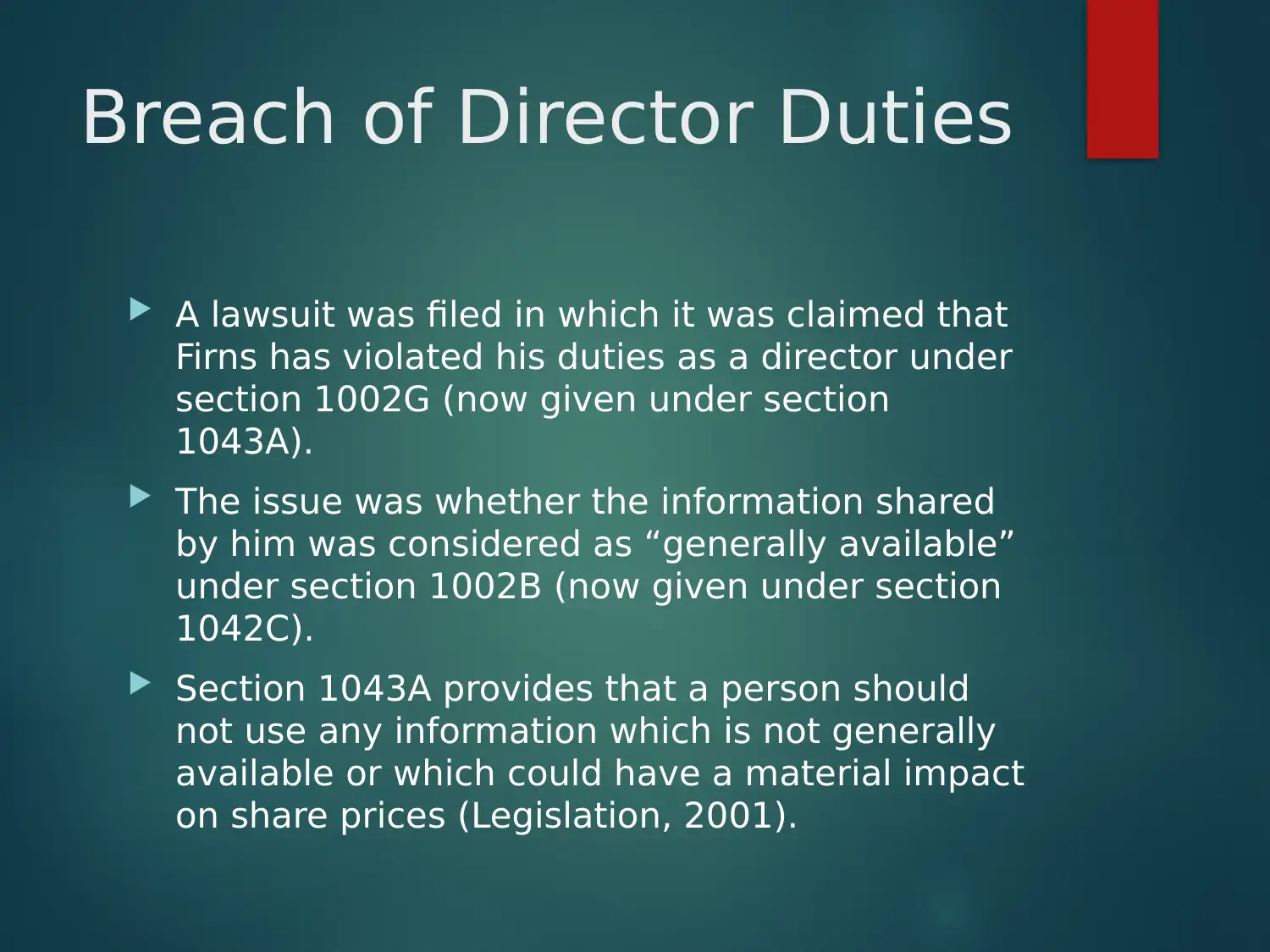
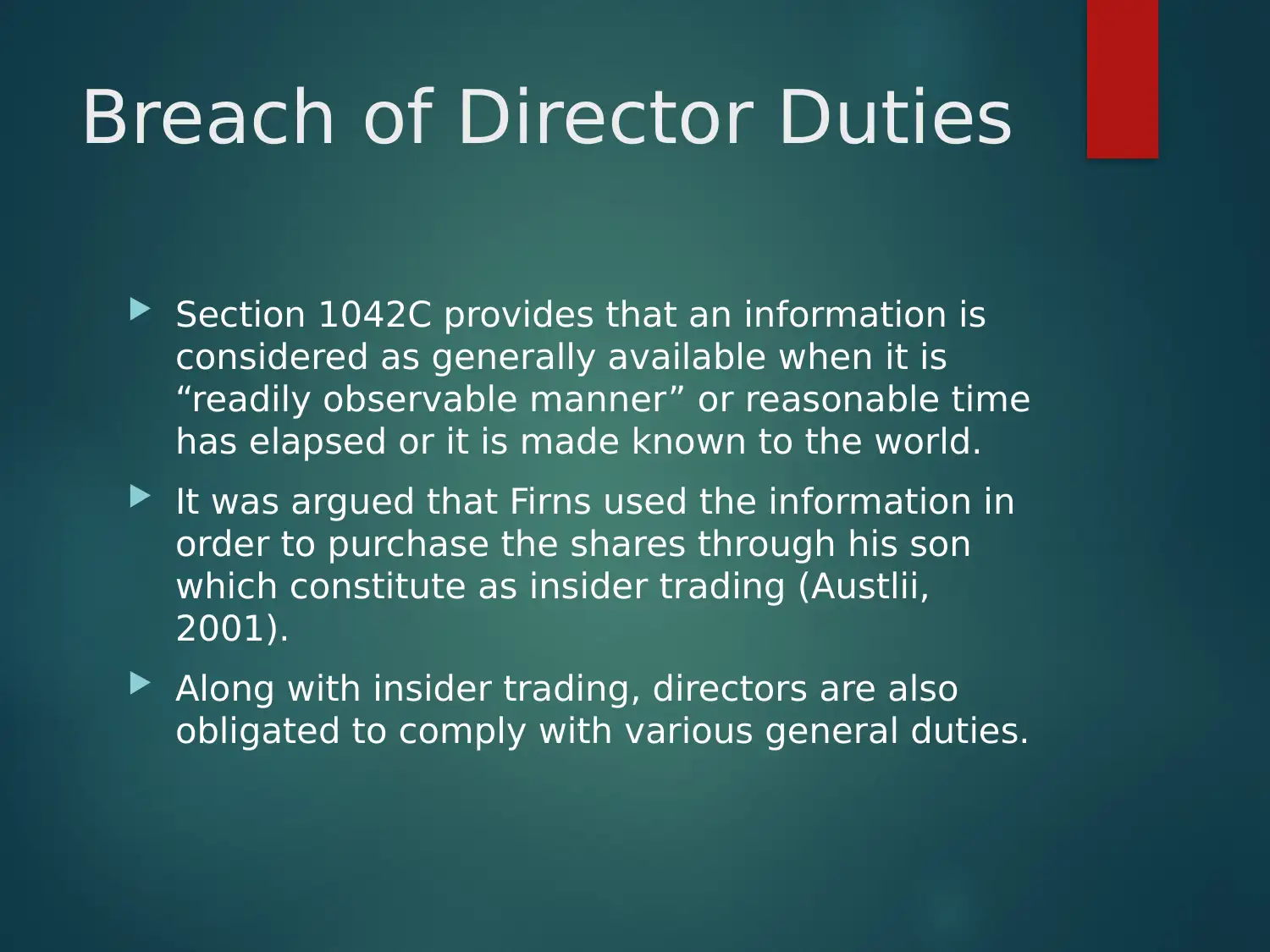
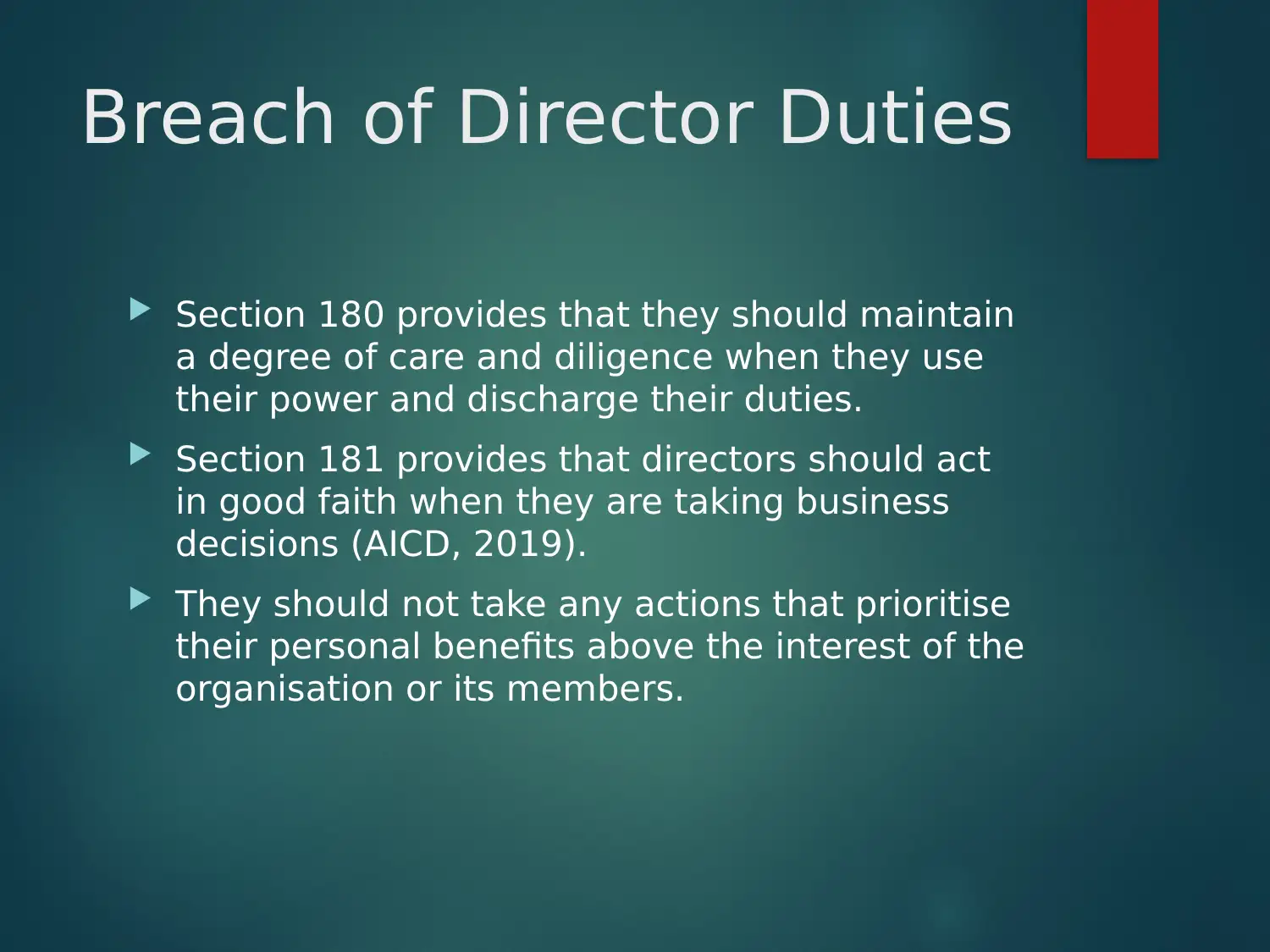
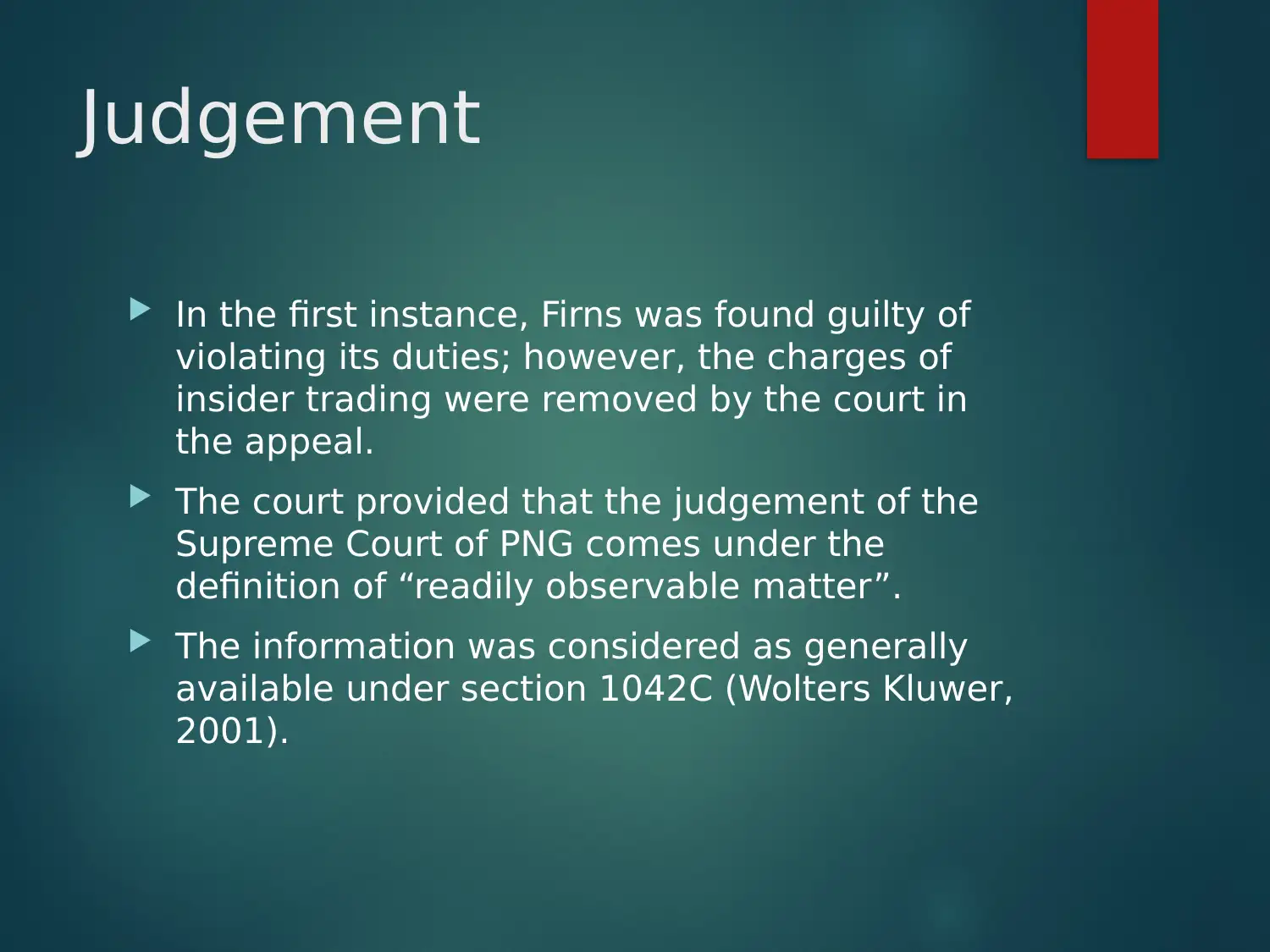
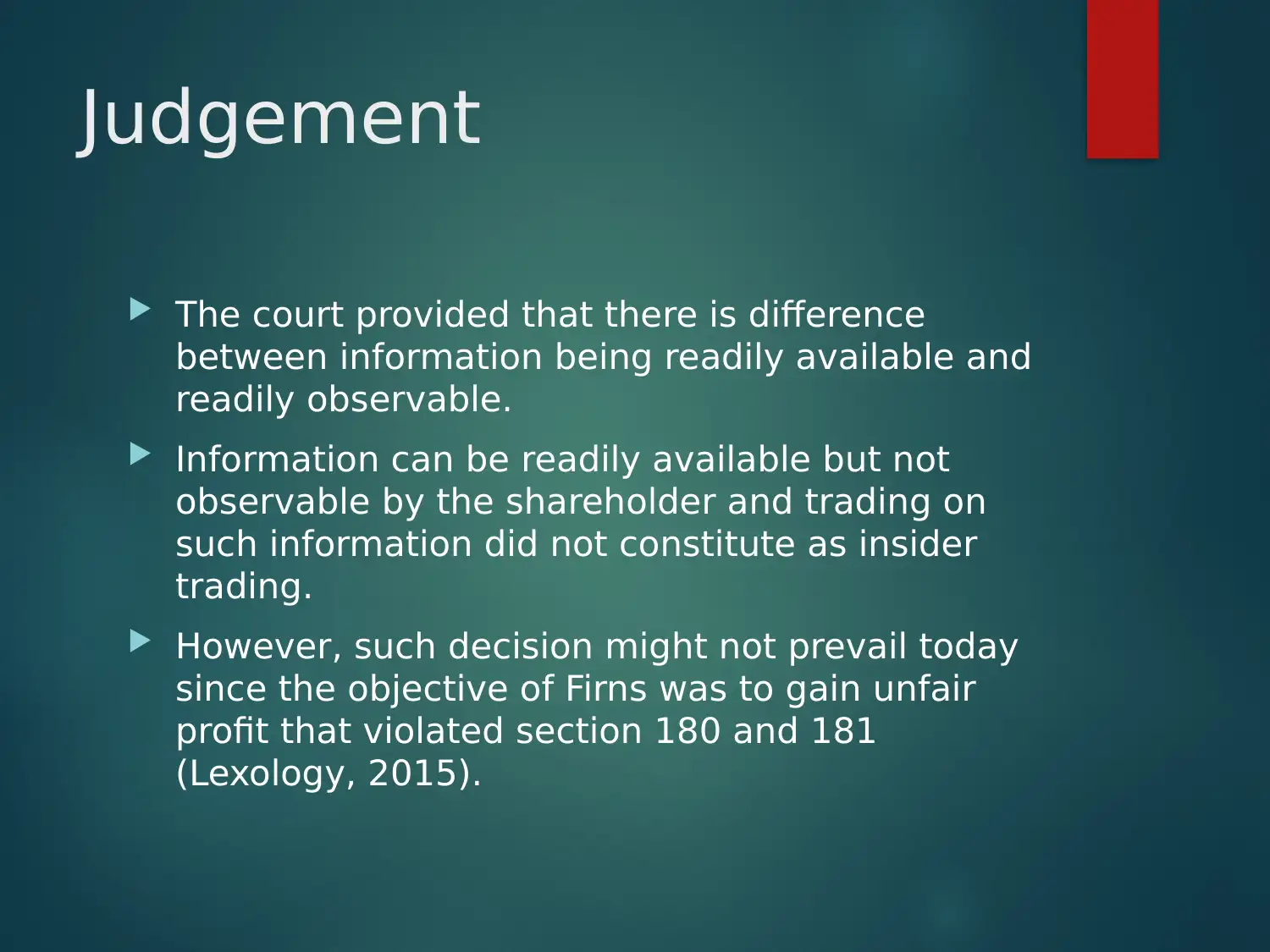
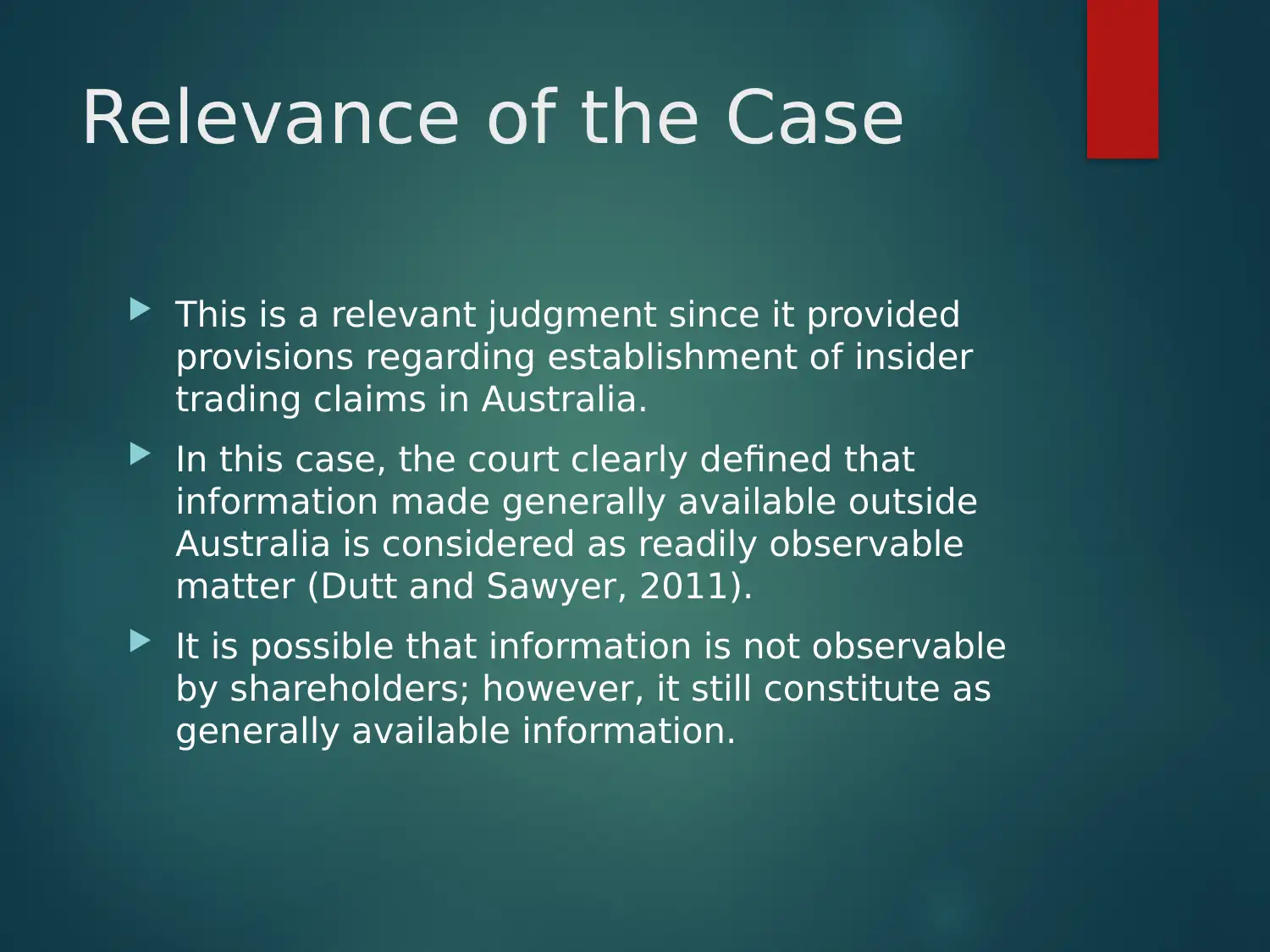
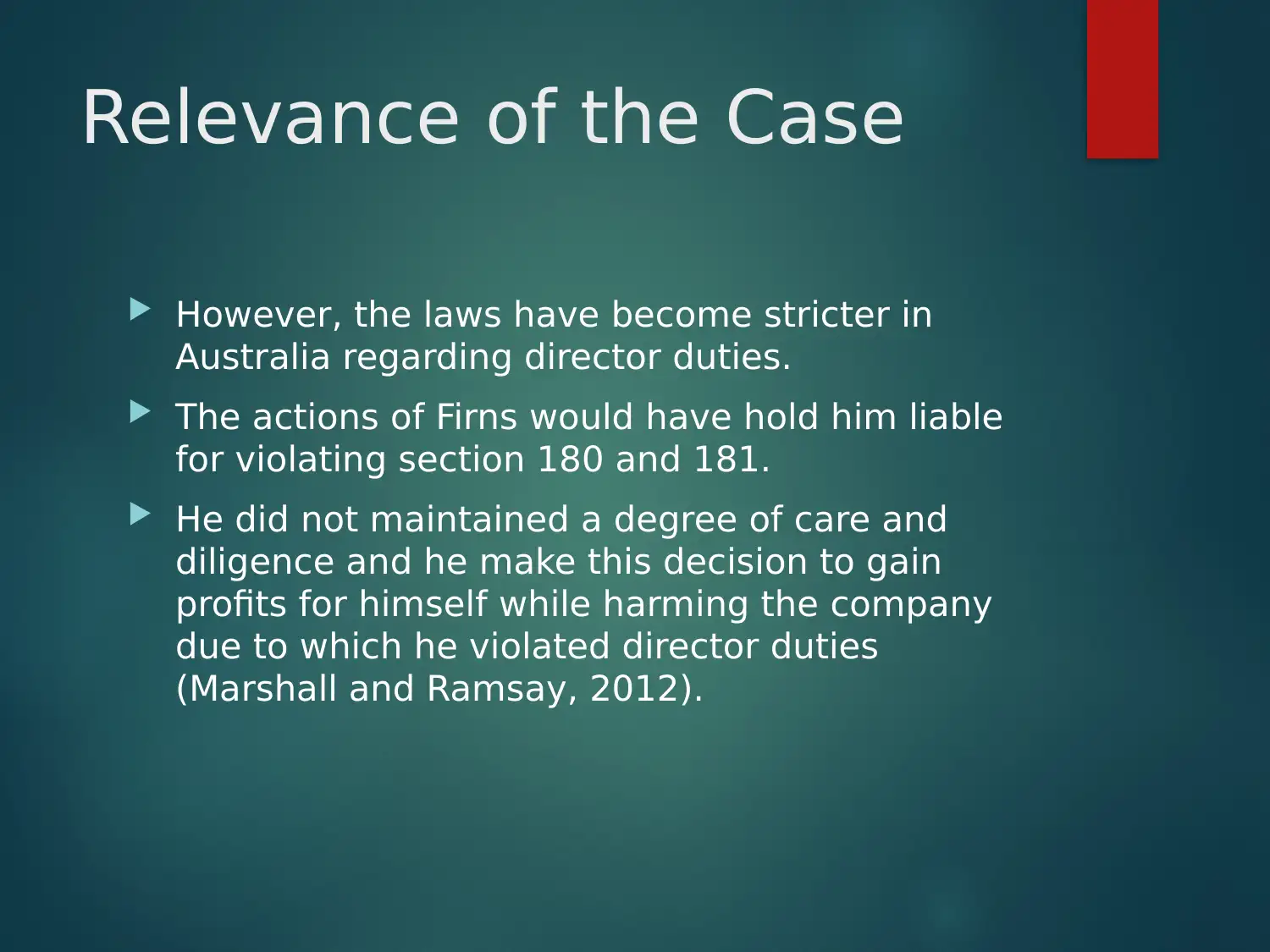




![[object Object]](/_next/static/media/star-bottom.7253800d.svg)